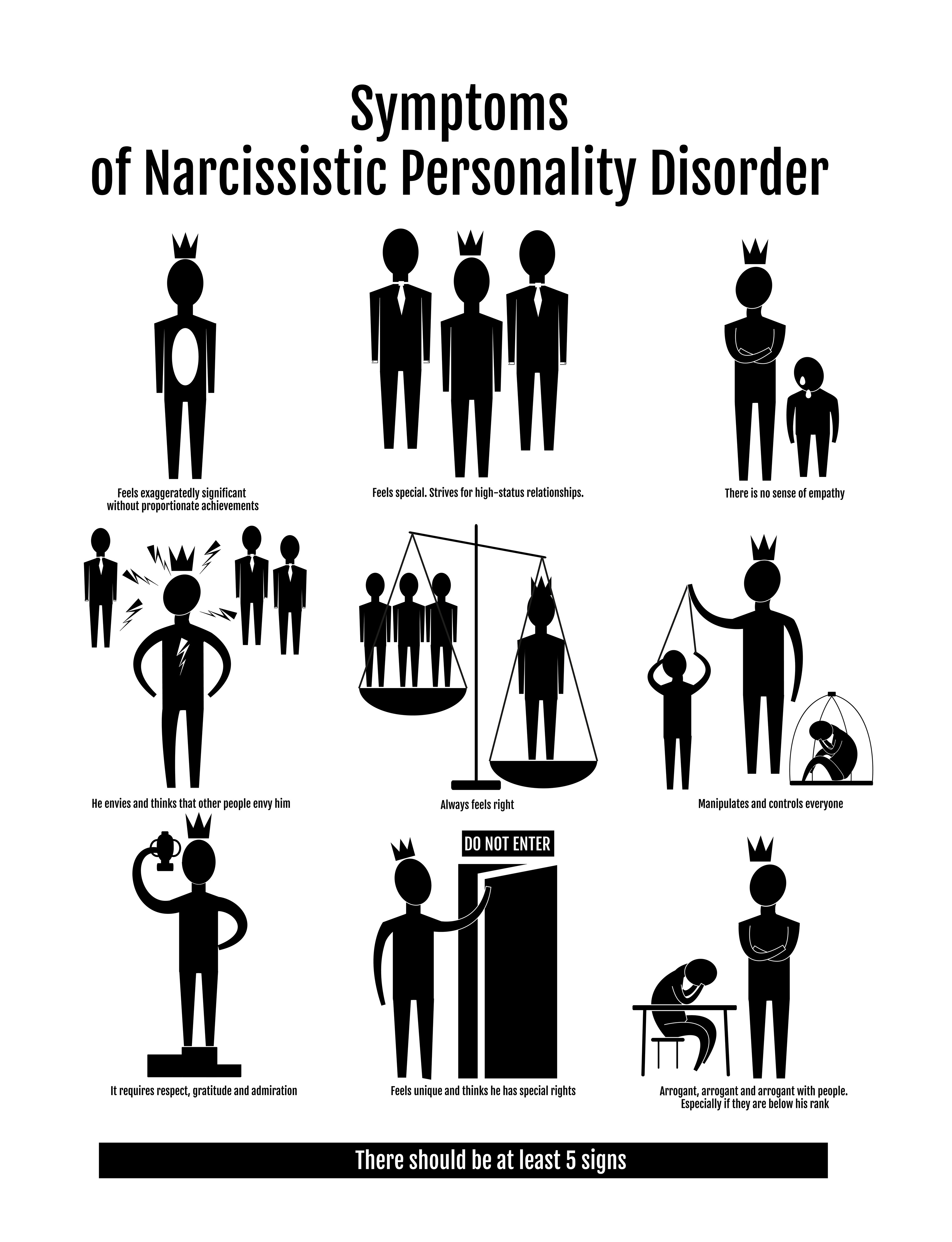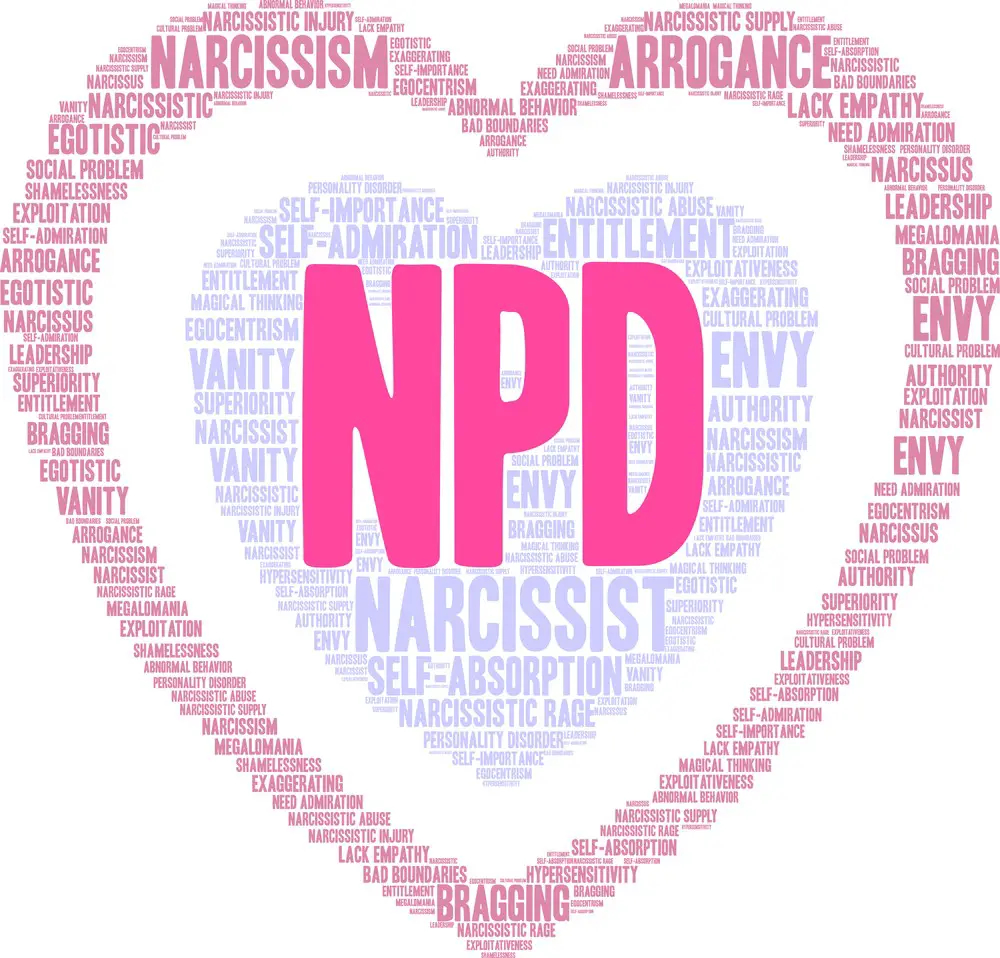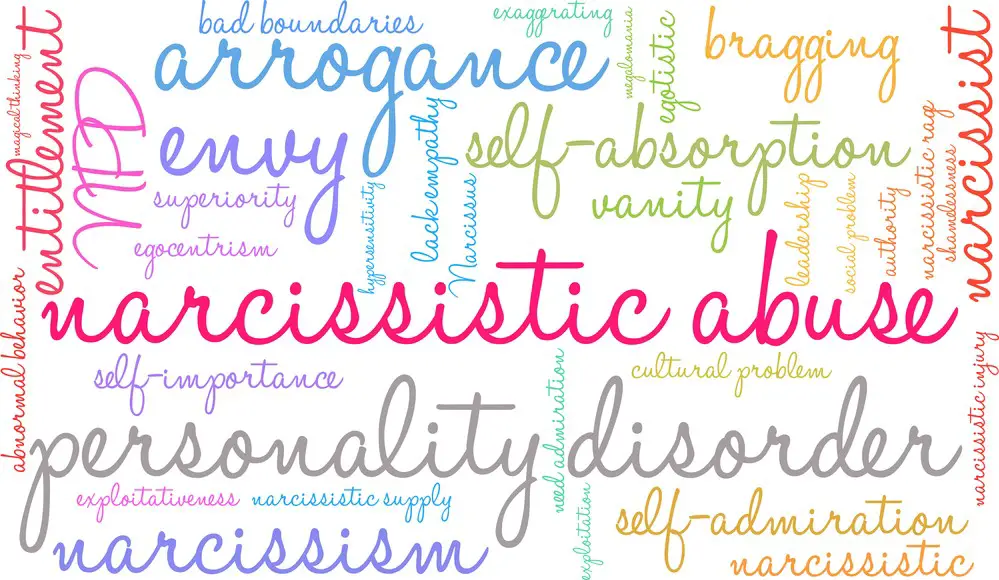Narcissistic Personality Disorder (NPD) is a mental health condition characterized by a persistent pattern of exaggerated self-importance, a constant need for attention and admiration, and a lack of empathy for others. Individuals with NPD often struggle to maintain healthy relationships, making marriage a particular challenge for them.
When narcissists enter a marriage, it often begins with an idealization phase where they shower their partner with love and adoration. However, as the relationship progresses, they may start to devalue their partner, seeking to control and manipulate them. This can make long-term marriages with a narcissist incredibly difficult for the narcissist and their spouse, who may experience significant emotional and psychological impacts due to the narcissistic abuse.
Key Takeaways
- Narcissists often struggle to maintain long-term marriages due to their manipulation and lack of empathy.
- A narcissistic marriage’s idealization and devaluation stages contribute to instability and emotional turmoil.
- Setting boundaries and seeking support can help victims of narcissistic abuse survive within the marriage or navigate the path to divorce.

Understanding Narcissistic Personality Disorder
Narcissistic Personality Disorder (NPD) is a mental condition characterized by a persistent pattern of grandiosity, a need for admiration, and a lack of empathy for others. Individuals with NPD often have an inflated sense of self-importance and a deep desire for attention. As a result, they frequently engage in manipulative and self-centered behaviors, making it challenging to maintain healthy, long-lasting relationships.
One of the key features of NPD is a lack of empathy for other people’s emotions and needs. This absence of empathy prevents narcissists from genuinely understanding and connecting with their partner, which can lead to significant issues within a marriage. Narcissists often struggle to see their partner as a separate individual with their thoughts and feelings; instead, they may view their spouse as an extension of themselves, existing primarily to fulfill their demands.
NPD often coincides with a fragile ego that requires constant validation and praise. Since self-centered individuals tend to place their own needs and desires above those of their partners, marriages involving someone with NPD may experience a great deal of imbalance and inequality. This can result in a dysfunctional and toxic dynamic. For example, narcissists might constantly seek attention and admiration, while their spouses may feel overlooked, unimportant, or emotionally drained.
In conclusion, the complexities associated with Narcissistic Personality Disorder make sustaining a long-term marriage difficult for those affected. The combination of a fragile ego, a heightened sense of self-importance, and a lack of empathy can create a challenging environment for maintaining a healthy and stable relationship.

The Narcissist in Relationships
Narcissists are known for their ability to charm and manipulate others, making them appear ideal partners at the beginning of a relationship. Their magnetic personalities can draw people in, leading to a sense of dependence on the narcissist’s validation and attention.
However, once a relationship is established, the narcissist’s true nature becomes more apparent. They can exhibit emotionally and mentally abusive behavior toward their partners. This can result in partners feeling trapped and confused, as the same person who initially captivated them now causes them great pain and turmoil.
Inevitably, the narcissist’s behavior stems from a constant need for admiration and praise. When these needs aren’t met, they can become hostile and controlling, further diminishing the quality of the relationship. One way to recognize the warning signs of a narcissistic partner is by being aware of the red flags that indicate manipulation or emotional abuse.
It can be challenging to determine how long a narcissist can stay married. Given their penchant for manipulation and lack of empathy, a narcissist can remain married for years as long as they feel their partner continues to meet their needs or they can still maintain control over the relationship.
However, the key to understanding the longevity of a narcissistic marriage lies in the partner’s response to the narcissist’s behavior. If the partner becomes less dependent on the narcissist over time or develops the strength to confront the abusive behavior, the chances of the marriage dissolving increase. On the other hand, if the partner continues to enable the narcissist’s manipulation, the marriage could endure despite the unhealthy dynamic.
In conclusion, the length of a narcissistic marriage depends on various factors, including the partner’s awareness of the narcissist’s manipulative and abusive behaviors and willingness to confront or address these issues. By being informed and vigilant, individuals can protect themselves from falling into prolonged, unhealthy relationships with narcissists.

Marriage with a Narcissist: The Idealization Phase
The initial stage of a marriage with a narcissist often involves intense charm and attention from the narcissistic partner. They will shower their spouse with adoration, admiration, and compliments, making them feel incredibly special and desired.
During this idealization phase, the narcissist may exhibit high confidence and appear to be the perfect partner. They will be attentive to their spouse’s needs and seemingly put their partner on a pedestal. At this point, the spouse may be completely enamored with the narcissist’s charm and personality.
The narcissistic partner will often mimic the interests and goals of their spouse, creating a false sense of compatibility. This manipulative tactic allows them to strengthen their emotional bond with their partner while maintaining control over the relationship.
As the marriage progresses, the narcissist’s attention to their spouse may become increasingly intense and demanding. They may want constant praise and admiration and expect their partner to cater to their every whim. This excessive need for validation often stems from deep-rooted insecurity that the narcissist seeks to mask with their outward display of confidence.
The idealization phase can last for varying durations, depending on the individual narcissist and the dynamics of the marriage. Eventually, the cracks in their facade may begin to show, exposing the toxic nature of the relationship. During this time, the level of charm and attention may diminish, signaling the transition from the idealization phase to the more volatile stages of a marriage with a narcissist.
Marriage with a Narcissist: The Devaluation Stage
In marriages with a narcissist, the devaluation stage is a critical phase marked by increased criticism, gaslighting, and emotional abuse. During this stage, the narcissist begins devaluing their spouse, often eroding their self-esteem and confidence. This process can be confusing and hurtful for the non-narcissistic partner, as the initial idealization phase—when the narcissist showers them with affection and praise—fades away.
One of the key aspects of the devaluation stage is gaslighting, a manipulative tactic where narcissist plants seeds of doubt in their partner’s mind, causing them to question their reality. This form of emotional abuse can make the victim feel insecure and uncertain about their perceptions, allowing the narcissist to control them. Over time, this can severely affect the victim’s mental and emotional well-being.
The narcissist also employs criticism as a weapon during the devaluation stage. They may belittle their spouse’s accomplishments, undermine their opinions, and ridicule their insecurities. They often do this to project their inadequacy onto their partner, thus avoiding confronting their shortcomings. This constant barrage of negativity can leave the non-narcissistic spouse feeling drained and emotionally defeated.
As the devaluation stage progresses, the narcissist may escalate their behavior, engaging in more severe forms of abuse. This can include isolation from friends and family, financial control, and physical violence. The victim may become increasingly dependent on the narcissist for validation, resulting in a cycle of abuse that is difficult to break.
Despite the seemingly insurmountable challenges of a marriage with a narcissist, some couples stay together. However, the emotional toll of living with such a partner can be significant, and seeking support from friends, family, or mental health professionals is crucial for the well-being of both partners.

The Dynamics of Power and Control
In a marriage involving a narcissist, power, and control play a pivotal role. The narcissist seeks to manipulate their partner using various tactics, often rooted in their insatiable need for status and influence. Through this manipulation, they aim to gain the upper hand in the relationship and maintain their inflated self-image.
One significant aspect of a narcissist’s control tactics is the abuse cycle, which characterizes the unhealthy interaction pattern within the marriage. The cycle typically comprises four stages: tension building, incident, reconciliation, and calm. This exhausting loop propagates the narcissist’s control over their partner, often leading to emotional, psychological, and even physical harm.
The narcissist employs various forms of manipulation, including gaslighting, withholding affection, and financial control, to strengthen their power within the marriage. By undermining their partner’s self-worth and independence, they maintain a superior position and prevent perceived challenges to their status.
Despite the inherent instability in a marriage with a narcissist, longevity is still possible under specific circumstances. Factors such as mutual dependence, fear of social judgment, and the presence of children might compel the non-narcissistic partner to remain in the marriage. Additionally, narcissists can evolve throughout the relationship, adapting to maintain power and control.
In summary, the narcissist’s pursuit of control and power fuels the unhealthy dynamics within their marriage. By manipulating and perpetuating an abuse cycle, they maintain their status and influence through relentless tactics. The marriage’s longevity hinges on numerous factors, including the narcissist’s adaptability and the non-narcissistic partner’s resilience or submission to the dynamic.
The Narcissist and Parenting
Narcissistic individuals can exhibit manipulative and abusive behavior not only toward their spouses but also towards their children. Children in a family with a narcissistic parent may struggle to understand the volatile dynamics and may be exposed to emotional, psychological, or even physical harm. The narcissist’s need for validation can lead them to use their children as pawns to maintain power and control.
The narcissistic parent might attempt to control their children’s friendships, making it difficult for the child to establish healthy social connections. This controlling behavior often stems from the narcissist’s desire to protect their image or exert dominance over their family members. They may also manipulate their children’s emotions to achieve their goals, which can lead to emotional dysfunction in the long run.
In some cases, the narcissist may act as a doting, loving parent in front of friends and relatives. However, this facade dissipates behind closed doors, and narcissists may exhibit abusive behaviors toward their spouses and children. This inconsistency between public and private behavior can confuse and traumatize the child.
The children often develop coping mechanisms for the narcissistic parent’s temperamental behavior. Some may become excessively compliant and eager to please the narcissist to avoid conflict. Others might develop narcissistic tendencies and learn to manipulate others to gain power and control in their own lives.
Ultimately, the narcissist’s parenting style may have long-lasting effects on their children’s mental and emotional well-being. It is crucial for adults who recognize narcissistic tendencies in themselves or their partners to seek professional help, as addressing these issues early on can improve the outcome for the children involved.
The Effects of Narcissistic Abuse on the Victim
Narcissistic abuse is a toxic relationship dynamic that can harm a victim’s mental health and well-being. The narcissist, usually a manipulative individual, frequently uses tactics such as gaslighting, love bombing, and subtle emotional manipulations to maintain control over their victim, who is often an empath.
Empaths have deep compassion and sensitivity to others’ emotions, making them ideal targets for narcissists to exploit. The abuse they endure often leads to a deterioration of their mental health and emotional stability. Anxiety, depression, and post-traumatic stress disorder (PTSD) are just some symptoms that victims might experience due to their exposure to narcissistic abuse.
Even more concerning is the development of a dependence on the toxic relationship. The narcissist skillfully creates a dynamic where the empath feels they cannot function or survive without them, further enabling the cycle of abuse to persist. Victims may become isolated from friends and family, exacerbating pre-existing mental health conditions. Additionally, the abuse can lead to physical manifestations, such as headaches, heart palpitations, and chronic fatigue.
While some narcissists can maintain long-term relationships, the victim’s mental and emotional health will often experience a sustained decline if the abuse is unchecked. Seeking support and professional guidance is crucial to breaking free from the detrimental effects of the abuse and starting the journey toward healing. Although the road to recovery may not be easy, getting the necessary help will ultimately prove invaluable.
Surviving the Narcissistic Marriage: Setting Boundaries
In a narcissistic marriage, setting boundaries is crucial for maintaining a healthy relationship. Establishing clear limits helps to protect oneself from psychological abuse and manipulation that often characterizes this type of union.
First, the non-narcissistic spouse must recognize and understand the cycle of abuse in their relationship. Identifying patterns of gaslighting, emotional manipulation, and control are essential steps in creating effective boundaries. By being aware of these tactics, they will be better equipped to prevent such behaviors from escalating.
To establish boundaries, the non-narcissistic spouse should communicate their needs and expectations clearly and assertively. This might include expressing personal limits, such as not tolerating verbal abuse or setting time limits on conversations to prevent endless arguments. Communicating these boundaries can be challenging, but asserting oneself to maintain a sense of self-worth and autonomy is crucial.
In addition to verbal communication, the non-narcissistic spouse must enforce their boundaries consistently. This can involve disengaging from harmful conversations or maintaining physical distance when necessary. It may be helpful to develop a support system by confiding in friends and family who can help validate their feelings and remind them of their right to respect and decency in the marriage.
In some cases, professional help such as therapy or couples counseling may be beneficial to assist in establishing and maintaining healthy boundaries. Working with a professional can provide additional guidance, support, and coping strategies for navigating the complexities of a narcissistic marriage.
Ultimately, setting strong boundaries is crucial in managing a narcissistic marriage. The non-narcissistic spouse must assertively communicate their boundaries to protect their mental and emotional well-being in the face of potential abuse and manipulation. By doing so, they can take important steps towards fostering a healthier and more balanced relationship.
Divorce can be a particularly challenging experience for spouses of narcissists. Narcissistic individuals often engage in manipulative behavior and may use the court system as an extension of their power plays. While dealing with a narcissist during a divorce, maintaining a confident, neutral, and clear stance may help individuals navigate the process more effectively.
In divorce proceedings, a narcissist may use money as a weapon by hiding assets or trying to secure an unfair settlement. They might spend excessive legal fees to drag out the process and attempt to intimidate their spouse. Financial transparency and working closely with a skilled attorney can help individuals counter these tactics and ensure a fair outcome.
It’s not uncommon for narcissists to manipulate further throughout the divorce process, as they might feel threatened and retaliate against their spouse. For example, they might spread false claims about their spouse, making them look bad to gain sympathy or control. Recognizing these destructive behavior patterns is essential in protecting oneself against a narcissist’s emotional manipulation.
Narcissists may also use children as pawns in divorce since they view relationships as a means of control. They could use custody as a bargaining tool or attempt to influence or alienate the children from the other parent. Understanding and identifying these tactics can help individuals and their legal team work toward the children’s best interests.
It’s important to remember that the court system may not recognize narcissistic behavior unless it’s explicitly presented through evidence. Documenting any incidents of manipulation or abuse is crucial in building a strong case to defend against narcissistic control tactics during a divorce. Communicating these concerns with a legal team and prioritizing one’s well-being throughout the process is essential for moving toward a healthier and happier life.
Frequently Asked Questions
How does a narcissist choose a spouse?
A narcissist typically chooses a spouse based on how that person can enhance their image or meet their emotional needs. They may be attracted to partners who are good-looking, successful, or have a certain social status. Their spouse must validate and admire them, catering to the narcissist’s ego. The chosen partner often possesses qualities that the narcissist lacks or admires.
Is it possible for a narcissist to have a long-lasting marriage?
While it’s difficult for a narcissist to maintain a long-lasting marriage, it’s not impossible. The marriage can endure if the spouse continues to fulfill the narcissist’s emotional needs and submits to their controlling behavior. However, this is often at the expense of the partner’s mental and emotional well-being, leading to an unhealthy and unbalanced relationship.
What is the divorce rate for marriages involving narcissists?
It’s challenging to pinpoint an exact divorce rate for marriages involving narcissists, as narcissistic behavior may not always be clinically diagnosed or reported. However, it’s known that narcissists are more likely to experience relationship breakdowns, with higher divorce rates than non-narcissistic couples. This is primarily due to their unstable emotional state, need for control, and inability to genuinely connect with their spouse.
What are the common patterns in a narcissist’s marriage cycle?
A typical narcissistic marriage cycle consists of three stages: idealization, devaluation, and discard. During the idealization phase, the narcissist showers their partner with attention and admiration, making them feel special. However, as the relationship progresses, the devaluation phase begins, where the spouse is criticized, belittled, and compared to others. This behavior may be episodic or enduring, eroding the spouse’s self-confidence. Eventually, the narcissist may discard or abandon the relationship if they no longer perceive their partner as beneficial to their self-esteem or image.
How do narcissists treat their spouses?
Narcissists treat their spouses as an extension of themselves and use them to fulfill their emotional needs. Manipulation, control, and emotional abuse are common tactics employed by narcissists. They may use gaslighting, triangulation, or passive-aggression to maintain power in the relationship. Positive reinforcement in the form of compliments or acts of affection might be implemented sporadically to keep the partner confused and dependent on them.
What are the effects of being married to a narcissist long-term?
Long-term exposure to a narcissistic partner can have severe emotional and psychological consequences. The spouse may suffer from low self-esteem, anxiety, depression, and feelings of isolation. It’s common for individuals in such relationships to become codependent, prioritizing the narcissist’s needs and neglecting their own. In extreme cases, constant emotional turmoil and manipulation can result in complex post-traumatic stress disorder (C-PTSD). Seeking professional help and building a support network are essential steps toward recovery for those in narcissistic relationships.
- The Burnout Epidemic: Why We’re All Feeling Overwhelmed and How to Cope - February 9, 2024
- How to Live a Peaceful Life - February 9, 2024
- Useful Information You Should Know About Health Screenings - February 8, 2024
This site contains affiliate links to products. We will receive a commission for purchases made through these links.






